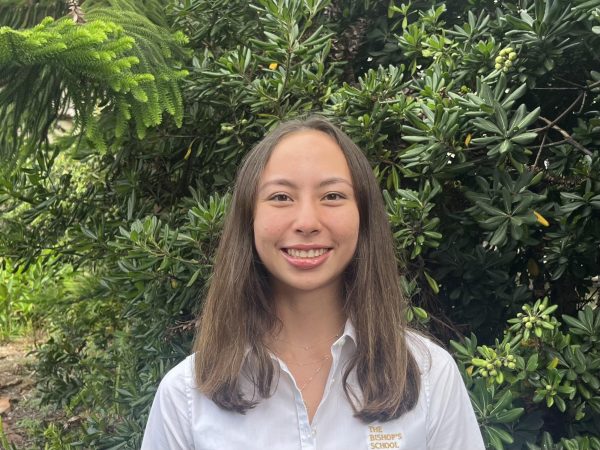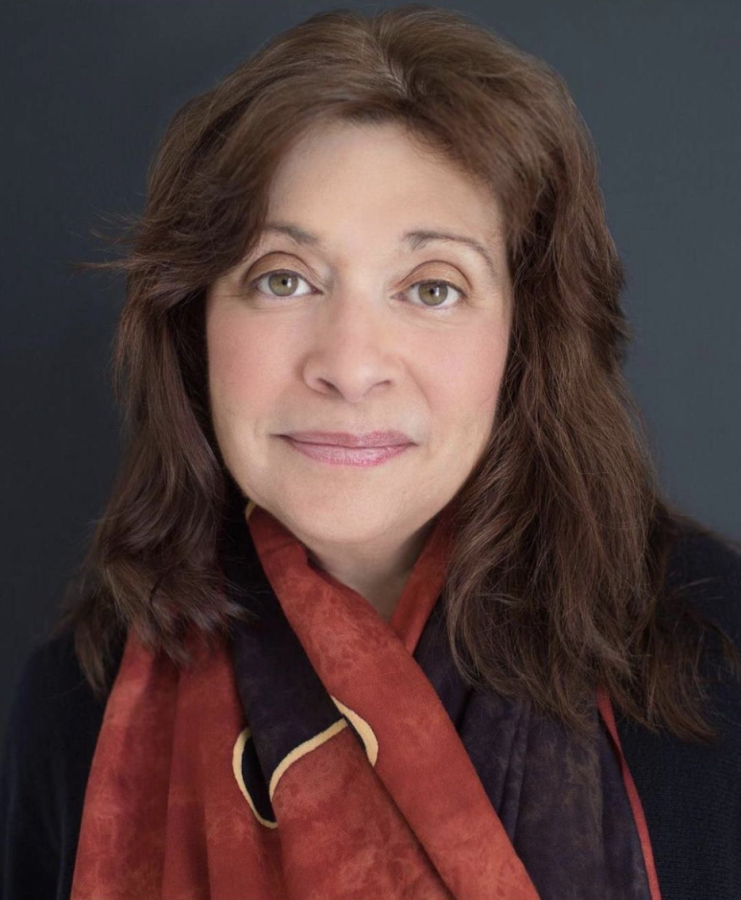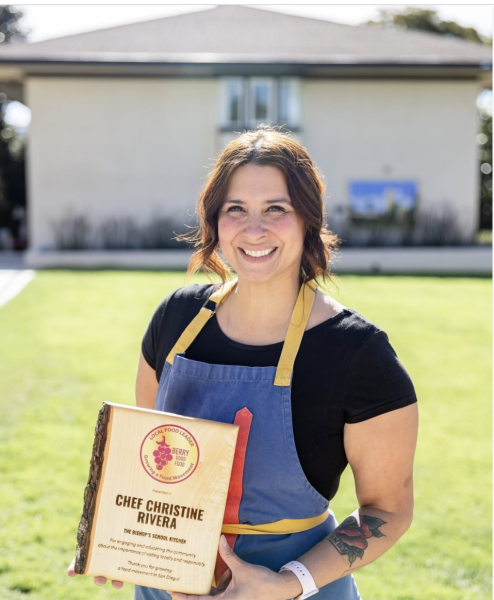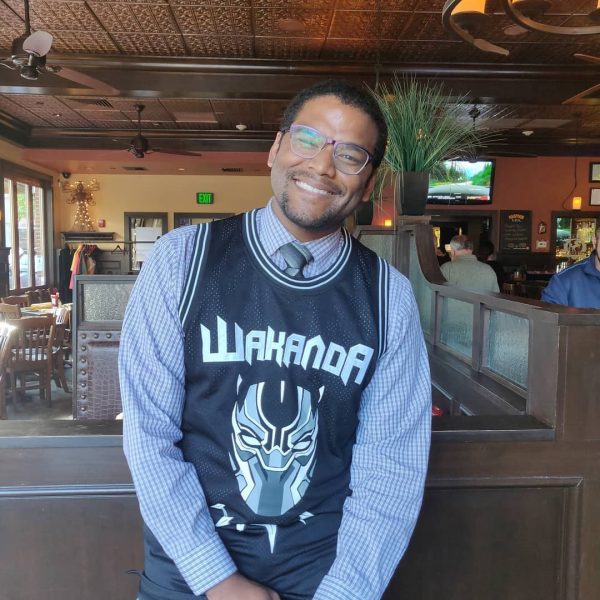Remembering Ms. Cory
Ms. Cory was a beloved dance teacher, mentor, colleague, and friend in the Bishop’s community.
Words cannot begin to encapsulate all that defines Ms. Donna Cory, Bishops’ beloved dance teacher who passed away on September 26, 2022. She was so much more than a dance teacher: she was a mentor, a friend, and a second mother to all of her students. In her 20 years of teaching dance at Bishop’s, Ms. Cory touched the hearts of so many young artists and changed students’ lives for the better.
As a second-year member of the Performing Dance Group (PDG) and student of Ms. Cory’s since Dance 8 in eighth grade, there are infinite words and clauses that I could use to try to express how much our community loved her. I’m going to share a few of my own favorite memories that I feel capture who she was as a teacher and person, to give those who never got a chance to work closely with her a window into what it was like.
Ms. Cory liked to talk. A lot. I’m sure her long spiels were one reason many of the energetic eighth grade boys who went through her PE rotation dreaded the class, aside from the main concern of looking stupid doing Ms. Cory’s challenging dance moves in front of their friends. But she really thought so deeply about everything, always wanting to express her values fully and thoroughly to her students. And she wanted no less than the same in return. “Talk to me,” she would say after we received any new information, sitting back in her seat and sometimes repeating it over and over until someone spoke up.
When she talked, she had a way of throwing in whimsical phrases that made you have to double back and reconsider what she really meant. In one PDG class in the 2021-2022 school year, she spoke about applying corrections, and how she could tell you infinite details to fix here and there, but at the end of the day, you understand your body best. You are the only one who knows how to take those directions and apply them to yourself. She used Elise Watson (‘22) as an example, saying that she could tell Elise what to do all day long, but only Elise knows what exactly to do with that information, because “she is actually inside of that canister.” This short phrase really stuck with me, representing how Ms. Cory saw the true inner potential in each one of us. She connected to us on so much deeper of a level than just the movement and instructions – as my classmate Sanskar Lohchab (‘24) agreed, she could somehow always look at you and know exactly what you were thinking.
On another note, Ms. Cory was just so funny. Ask any previous student of hers, and they would agree – she was hilarious. From up in the dance studio above the gym, if there’s no music being played, you can hear everything going on outside, including the conversations of students walking by the flagpoles in front of the gym. In one class, we heard a group of students—probably middle schoolers—singing a loud and unfortunate rendition of “happy birthday” to another student. We all listened in amusement for a second, and Ms. Cory said, “They’re singing that song in the key of Q.” In so many moments like these, Ms. Cory had the entire room dying of laughter.
Over time, I began to notice Ms. Cory’s desire to develop students that were not only good dancers but good people all around. For example, later in the evening one weekday, I was walking around campus looking for any maintenance member who might be able to unlock the orchestra room, since I’d forgotten to take home my violin that day. There was Ms. Cory, sitting at a table on the terrace right outside the dance room. This wasn’t surprising; she often stayed on campus for all hours making costumes and set pieces or otherwise preparing for an upcoming show. I said hi to her, then noticed two members of the Bishop’s maintenance crew nearby, so I ran over to them and explained my situation, and they kindly agreed to unlock the room for me.
Once I got back, relieved and violin in hand, I passed by Ms. Cory again, and she pulled me aside. What I had done was inconsiderate, she told me, and she expected better from me. The maintenance staff had been there since early in the morning, and it was not my place to interrupt them from wrapping up the end of their long day just because of my own mistake of leaving something at school. Instead, I should have directly called the Bishop’s security line. She told me to do better next time. I was shocked by how much Ms. Cory’s disappointment impacted me, even in a context outside of the dance studio. I had hardly considered the viewpoint of the two staff members, and Ms. Cory made me realize how my actions reflected what type of person I am, and how I needed to improve on that in the future.
In the studio, Ms. Cory had a unique, beautiful view of what the high school dance experience should be. I was lucky enough to hear her explain this view firsthand–I wish I had written down her exact wording. She expressed that her goal was to create a space for young artists to discover their craft no matter their background. Other dance companies and teams accepted people primarily based on physical competence: technique, flexibility, skill level, etc. To Ms. Cory, it was never about how many pirouettes you could do or how high you could grand jeté (leap).
Instead, in auditions, she looked for creativity, collaboration, and a willingness to take risks. She looked for artists. It didn’t matter whether you’d been in ballet classes since the day you could walk, grew up tap dancing competitively, or had only taken a few hip hop classes here and there. If anything, she embraced this diversity. As she described that day in class, since her first day at Bishop’s, she worked hard to shape PDG into the welcoming space that it is today, where students with a genuine passion in honing their craft can all come together as a team and work in a place of mutual growth.
The rich memories that we all cherish with Ms. Cory only make us grieve the future experiences that we will never get with her. However, one thing Ms. Cory said time and time again was that no matter what, she wanted us to “get the education that we came for.” As we continue to heal from this loss, she would want us to take care of ourselves first, and keep going. For this reason, it is the performing arts department’s responsibility to keep making art in her honor. As a creative community, we will carry Ms. Cory’s legacy of inclusion and inspiration with us always.

Isadora is a senior and an Editor-in-Chief. A four-year member of The Tower, she loves to write about a variety of topics, from school coverage to national...






